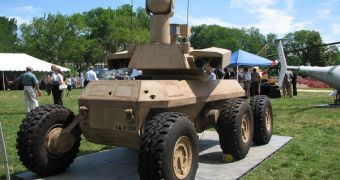While two or three decades ago the idea of a war of robots may have seemed ludicrous and whimsical, now military analysts are not so sure about that. Latest developments in remote-controlled technologies and unmanned combat vehicles make the specter of a war between robots loom threatening over our heads. More than 40 nations are developing high-tech robotic combat systems for the same motivation – the reduction of human casualties. Instead of eliminating the cause of conflicts, military officials worldwide simply change the configuration of battlefields.
In his latest book, author P. W. Singer, who was at age 33 a Senior Fellow at the more-than-serious Brookings Institution, brings into the spotlight several issues connected with the advancements in the various technologies incorporated in modern battle drones. The world has come a long way from the teletanks of the second World War, and has entered an age of Mach 10 unmanned aerial vehicles (UAV) and remotely-operated armored machines.
The scenario depicted in his book is not at all unbelievable. It's actually based on current trends and does not present an apocalyptic view of the future. Rather, it argues that the current strives in creating robots able to distinguish between friends and foes will eventually lead to the creation of a highly-clever artificial intelligence (AI) that will make numerous decisions in a single second, based on built-in parameters programed by the maker. This type of system is, however, seriously flawed, in that some judgment calls can only be taken by humans, based on intuition or forward-looking plans.
“Within the next 30 years, we will have the technological means to create superhuman intelligence. Shortly thereafter, the human era will be ended,” a scy-fi writer said more than 15 years ago. Indeed, the part about advanced AI seems to be coming true. There are those who hold that robots will reach such a degree of self-awareness, that they will be able to build their own kind, outside human control. But major companies working in the field argue that they all follow the principles laid out by the great writer Isaac Asimov in his books, namely a few basic laws built into the AI, specifying that the machines are forbidden to harm humans outside their protocols.
“We are creating something exciting and new, a technology that might just transform humans' role in their world, perhaps even create a new species. But this revolution is mainly driven by our inability to move beyond the conflicts that have shaped human history from the very start. Sadly, our machines may not be the only thing wired for war,” Singer concludes in his book.

 14 DAY TRIAL //
14 DAY TRIAL //